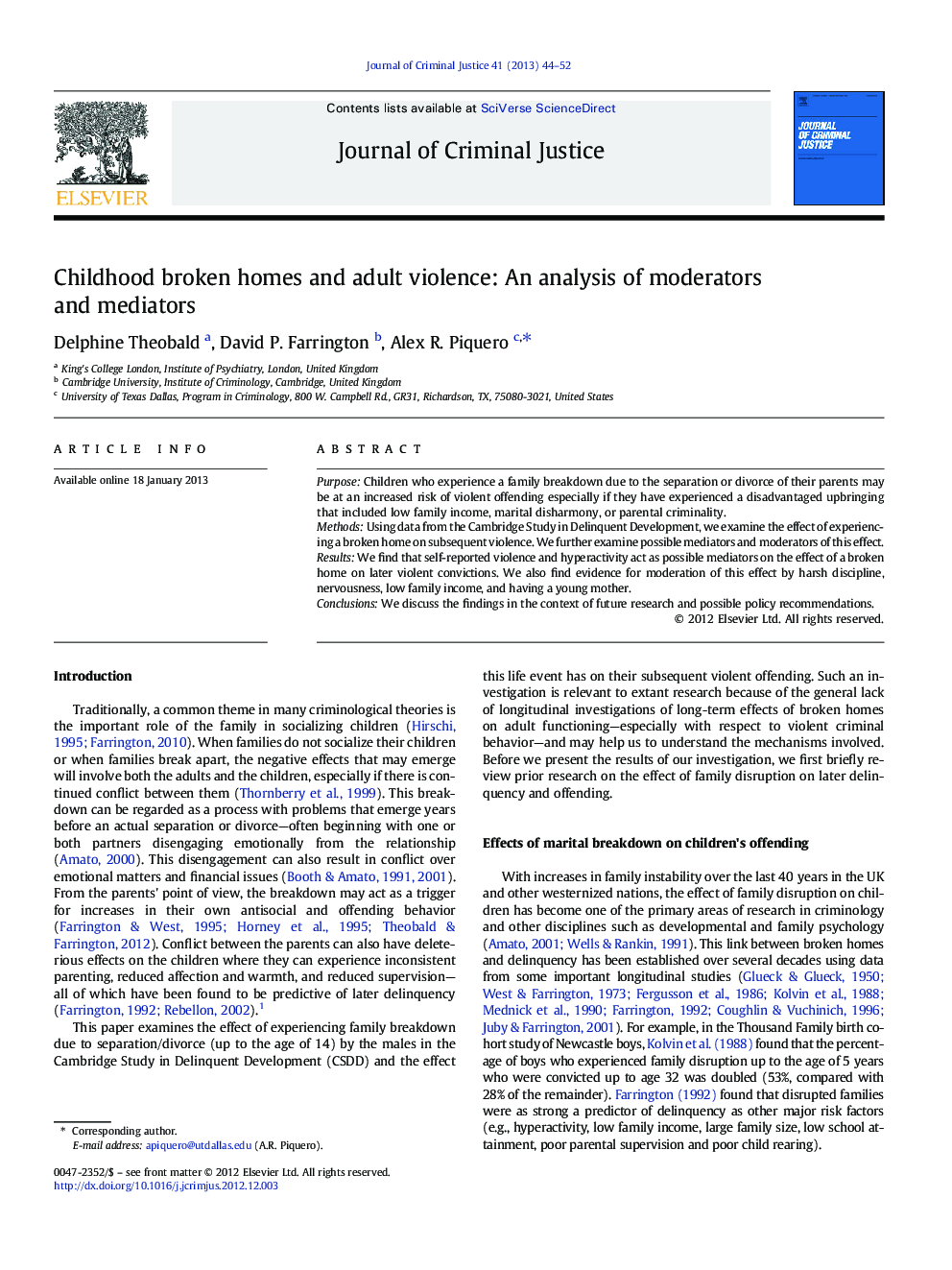| Article ID | Journal | Published Year | Pages | File Type |
|---|---|---|---|---|
| 882758 | Journal of Criminal Justice | 2013 | 9 Pages |
PurposeChildren who experience a family breakdown due to the separation or divorce of their parents may be at an increased risk of violent offending especially if they have experienced a disadvantaged upbringing that included low family income, marital disharmony, or parental criminality.MethodsUsing data from the Cambridge Study in Delinquent Development, we examine the effect of experiencing a broken home on subsequent violence. We further examine possible mediators and moderators of this effect.ResultsWe find that self-reported violence and hyperactivity act as possible mediators on the effect of a broken home on later violent convictions. We also find evidence for moderation of this effect by harsh discipline, nervousness, low family income, and having a young mother.ConclusionsWe discuss the findings in the context of future research and possible policy recommendations.
► Experiencing a broken home up to the age of 14 predicted violent criminal conviction by age 50. ► The effect on violent conviction was moderated by nervous disposition and harsh discipline. ► The effect of broken home on later violent conviction was mediated by several variables. ► The most important mediators were self-reported violence and hyperactivity. ► In sum, the ‘broken homes effect’ is more nuanced and can lead to distinct outcomes in a myriad of ways.
